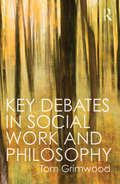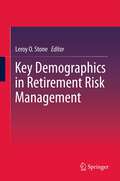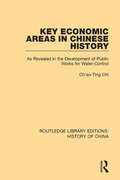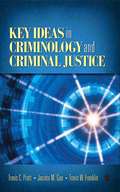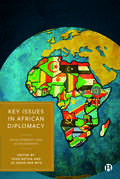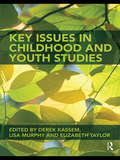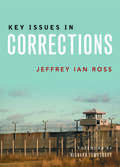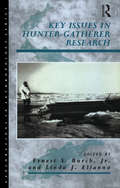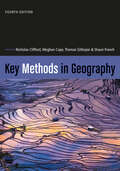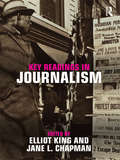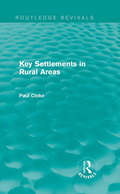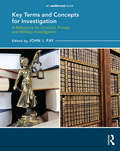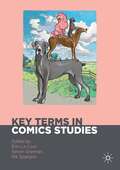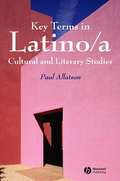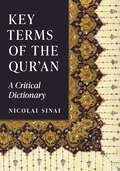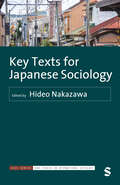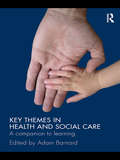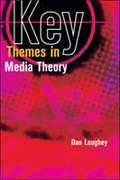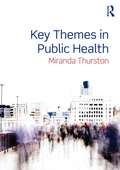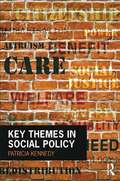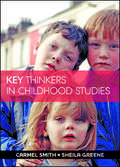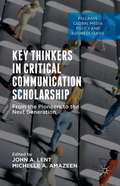- Table View
- List View
Key Debates in Social Work and Philosophy
by Tom GrimwoodIn order to practice effectively in today’s complex and changing environment, social workers need to have an understanding of how contemporary cultural and philosophical concepts relate to the people they work with and the fields they practice in. Exploring the ideas of philosophers, including Nietzsche, Gadamer, Taylor, Adorno, MacIntyre, Zizek and Derrida, this text demonstrates their relevance to social work practice and presents new approaches and frameworks to understanding social change. Key Debates in Social Work and Philosophy introduces a range of concerns central to social work and social care, with chapters looking at questions such as: - What is the ‘self’? - How are communities formed? - Why is ‘choice’ important? - Are certain rights really applicable to all humans? - What are the political and ethical implications of documenting your practice? - What does it mean to be a professional social worker? Each chapter focuses on a particular area of dispute, presenting the relevant philosophical theories, and considering how relevant social work examples and research can be used to further inform theoretical debate, and includes questions to prompt discussion and reflection. The only book to examine the philosophical ideas that underlie and inform contemporary issues for social work and social care practitioners, this is a useful resource for those studying social work theory, policy and practice.
Key Demographics in Retirement Risk Management
by Leroy O StoneKey Demographics in Retirement Risk Management argues that the weakening of public and employer-sponsored social safety nets in several countries will permanently increase pre-retirees' risk-anxiety and create pressure towards readjustment of their expectations about the quality of their lives in retirement. The result will be to raise the priority of achieving effective comprehensive retirement related risk management. This achievement requires an emphasis upon the cascading of linked risks, and careful attention to the optimization of scarce resources used to manage those linked risks. Professional financial and retirement planning advisors comprise a key source of help. This book develops new knowledge concerning the factors that help to explain three important aspects of access to these professional advisors. The results of this analysis are used to illustrate the process of identifying distinctive population segments, key demographics, on the basis of multiple population attributes treated simultaneously. The illustration is further extended with an identification of distinctive population segments relative to performance on a composite indicator of the conduct of multiple retirement risk management activities. The book also discusses implications of the pattern of gender differences in preparedness to address retirement's challenges, highlighting subgroups of women in which inadequate preparedness is pronounced.
Key Economic Areas in Chinese History: As Revealed in the Development of Public Works for Water-Control (Routledge Library Editions: History of China #10)
by Ch'ao-Ting ChiThis book, first published in 1936, offers the conception of the dynamics of the Key Economic Area as an aid to the understanding of Chinese economic history. By tracing their development through a historical study of the construction of irrigation and flood-control works and transport canals, it shows the function of the Key Economic Area as an instrument of control of subordinate areas.
Key Ideas in Criminology and Criminal Justice
by Travis C. Pratt Jacinta M. Gau Mr Travis W. FranklinKey Ideas in Criminology and Criminal Justice is an innovative, fascinating treatment of some of the seminal theories in criminology and key policies in criminal justice, offering a detailed and nuanced picture of these core ideas. With a fluid, accessible, and lively writing style, this brief text is organized around major theories, ideas, and movements that mark a turning point in the field, and concludes with a discussion of the future of criminology and criminal justice. Readers will learn about the most salient criminological and criminal justice research and understand its influence on theory and policy. They will also understand the surrounding socio-political conditions from which the ideas sprang and the style and manner in which they weredisseminated , both of which helped these scholarly contributions become cornerstones in the fields of criminology and criminal justice.
Key Issues in African Diplomacy: Developments and Achievements
by Sven Botha and Jo-Ansie van WykAfrica’s unique position as an international diplomatic actor has not always been given the attention it deserves. This volume bridges this gap by offering a fresh, comprehensive and realistic overview of African diplomacy. The book examines African diplomatic practice. Chapters explore how different types of diplomacy have developed over time, including energy diplomacy, economic diplomacy and quiet diplomacy. Crucially, the book assesses how certain events have allowed Africa to use certain types of diplomacy to yield better outcomes for itself. Including contributions from an international team of scholars, policy makers and experts from the diplomatic world, the book provides a comprehensive guide to African diplomacy and challenges the current dominant usage of Northern perspectives on diplomacy studies.
Key Issues in Childhood and Youth Studies
by Elizabeth Taylor Lisa Murphy Derek KassemKey Issues in Childhood and Youth Studies presents an informed and critical commentary on a range of key issues related to children and childhood, from birth to eighteen years. Challenging current orthodoxies within the adult world on the nature of childhood, it is an essential text for students of childhood and youth studies as well as those studying relevant professional qualifications in social work, teaching and health. Exploring ideas from the historical development of childhood to the demonising of youth, it is divided into five clearly defined sections, each with their own editorial introduction which highlights the key themes. The sections focus on: the concept and creation of childhood child development ideas of risk, protection and childhood the politics of childhood international perspectives on childhood. This invaluable textbook provides an overview of childhood and youth studies and encourages students to think about the issues discussed and to develop their own ideas. Each chapter contains student activities, key concept boxes, recommended further reading and a reflection exercise.
Key Issues in Corrections
by Jeffrey Ian RossKey Issues in Corrections is an engaging textbook critically analyzing the most important challenges affecting the correctional system in the USA. Written by a highly respected expert in the field, and building on his best-selling book Special problems in corrections, it examines long-standing and emerging issues, grounding the discussion in empirical research and current events. Updates to this edition include: • Integrating new scholarship, lawsuits, and the use of technology • The introduction and evaluation of new policies and practices • New sections on “The Privatization of Prisons” and “The Death Penalty” Primarily written for undergraduate students who have already had an introduction to the topic, the book offers a no-nonsense approach to explaining the problems of correctional officers, correctional managers, prisoners, and the public.
Key Issues in Hunter-Gatherer Research (Explorations In Anthropology Ser.)
by Ernest S. BurchHunter-gatherer research has experienced enormous expansion over the past three decades. In the late 1950s less than a score of anthropologists were actively engaged in issue-oriented studies of foraging populations. Since then, the number of active researchers has grown into the hundreds.This book offers the most up-to-date anthology of papers on hunter-gatherer research and contains possibly the most comprehensive bibliography on hunter-gatherers ever published. It will be essential reading for all students of hunter-gatherer societies.
Key Methods in Geography
by Nicholas Clifford Meghan Cope Thomas GillespieKey Methods in Geography is the perfect introductory companion, providing an overview of qualitative and quantitative methods for human and physical geography. The fourth edition of this essential and accessible primer covers the breadth of the discipline and offer critical and contextual perspectives on research methods. New coverage takes account of newer technologies and practice, and 9 new chapters bring greater diversity of positionality and perspective to the volume, including decolonial methods, predicting, visualizing and modelling climate and environmental change, and writing up research. Case study examples, summaries and exercises have been included in each chapter to enable learning. This is vital reading for any student undertaking a Geography Methods module as well as a valuable resource for any student embarking on independent research as part of their degree.
Key Methods in Geography
by Nicholas Clifford Meghan Cope Thomas GillespieKey Methods in Geography is the perfect introductory companion, providing an overview of qualitative and quantitative methods for human and physical geography. The fourth edition of this essential and accessible primer covers the breadth of the discipline and offer critical and contextual perspectives on research methods. New coverage takes account of newer technologies and practice, and 9 new chapters bring greater diversity of positionality and perspective to the volume, including decolonial methods, predicting, visualizing and modelling climate and environmental change, and writing up research. Case study examples, summaries and exercises have been included in each chapter to enable learning. This is vital reading for any student undertaking a Geography Methods module as well as a valuable resource for any student embarking on independent research as part of their degree.
Key Readings in Journalism
by Jane Chapman Elliot KingKey Readings in Journalism brings together over thirty essential writings that every student of journalism should know. Designed as a primary text for undergraduate students, each reading was carefully chosen in response to extensive surveys from educators reflecting on the needs of today’s journalism classroom. Readings range from critical and historical studies of journalism, such as Walter Lippmann’s Public Opinion and Michael Schudson’s Discovering the News, to examples of classic reporting, such as Carl Bernstein and Bob Woodward’s All the President’s Men. They are supplemented by additional readings to broaden the volume’s scope in every dimension, including gender, race, and nationality. The volume is arranged thematically to enable students to think deeply and broadly about journalism—its development, its practice, its key individuals and institutions, its social impact, and its future—and section introductions and headnotes precede each reading to provide context and key points for discussion.
Key Settlements in Rural Areas (Routledge Revivals)
by Paul ClokeThe problems of providing essential services in a constrained economic climate, and of conserving the rural environment whilst protecting rural people, are of immediate importance. This book, first published in 1979, was the first major piece of published research on the topic of rural settlement planning. It examines in detail the history and theory behind key settlement policies, and their practical application within the British rural planning system. Using Warwickshire and Devon as two very different case studies, Paul Cloke measures the outcome of settlement planning and discusses the wider implications of the ‘concentration-dispersal’ debate. This reissue will provide essential background for students of rural and social geography, and rural sociology and economics.
Key Terms and Concepts for Investigation: A Reference for Criminal, Private, and Military Investigators
by John J. FayKey Terms and Concepts for Investigation provides students and practitioners with a compilation of concise, accurate articles on major topics pertaining to criminal, private, and military investigations. Each entry in this reference features a definition and then describes its function in investigation, including best practices and job characteristics. From financial crimes, digital forensics, and crime scene investigation to fraud, DNA, and workplace violence, this compilation helps students master investigation and offers seasoned investigators a resource to further their knowledge of recent developments in the field.
Key Terms in Comics Studies (Palgrave Studies in Comics and Graphic Novels)
by Simon Grennan Erin La Cour Rik SpanjersKey Terms in Comics Studies is a glossary of over 300 terms and critical concepts currently used in the Anglophone academic study of comics, including those from other languages that are currently adopted and used in English. Written by nearly 100 international and contemporary experts from the field, the entries are succinctly defined, exemplified, and referenced. The entries are 250 words or fewer, placed in alphabetical order, and explicitly cross-referenced to others in the book. Key Terms in Comics Studies is an invaluable tool for both students and established researchers alike.
Key Terms in Latino/a Cultural and Literary Studies
by Paul AllatsonKey Terms in Latino/a Cultural and Literary Studies is an indispensable reference source comprised of hundreds of key terms central to this important and developing field.
Key Terms of the Qur'an: A Critical Dictionary
by Nicolai SinaiAn essential single-volume companion to the critical interpretation of Islamic scriptureThis book provides detailed and multidisciplinary coverage of a wealth of key Qur’anic terms, with incisive entries on crucial expressions ranging from the divine names allāh (“God”) and al-raḥmān (“the Merciful”) to the Qur’anic understanding of belief and self-surrender to God. It examines what the terms mean in Qur’anic usage, discusses how to translate them into English, and delineates the role they play in expressing the Qur’an’s distinctive understanding of God, humans, and the cosmos. It offers a comprehensive but nonreductionist investigation of the relationship of Qur’anic terms to earlier traditions such as Jewish and Christian literature, pre-Islamic Arabic poetry, and Arabian epigraphy. While the dictionary is primarily engaged in ascertaining what the Qur’an would have meant to its original recipients in late antique Arabia, it makes selective and critical use of later Muslim scholarship alongside an extensive body of secondary research in English, German, and French from the nineteenth century to today.The most authoritative historical-critical reference work on key Qur’anic termsFeatures a host of entries ranging from concise overviews to substantial essaysDraws on comparative material such as Jewish and Christian literature, pre-Islamic Arabic poetry, and Arabian epigraphyDiscusses how to best translate Qur’anic terms into EnglishExplores the Qur’an’s vision of God, humans, and the cosmos through an analysis of fundamental and recurrent Qur’anic expressionsAccessible to readers with little or no Arabic
Key Texts for Japanese Sociology (SAGE Studies in International Sociology)
by Hideo NakazawaThough rich, diverse, unique and engaging, Japan′s sociological outputs have been internationally underrepresented. In its thoughtful translation and curation of key Japanese sociological texts, this book redresses this imbalance and treads exciting new ground. Comprising 17 chapters spanning 7 decades, this text introduces you to fundamental themes, from classical studies in post-war Japan to contemporary sociological issues like migration politics, social mobility and gender-based violence. Key Texts for Japanese Sociology is an original, much-needed resource, empowering a foundational, confident understanding of the national, regional and local traditions of Japanese sociology from the latter half of the last century to today.
Key Texts for Japanese Sociology (SAGE Studies in International Sociology)
by Hideo NakazawaThough rich, diverse, unique and engaging, Japan′s sociological outputs have been internationally underrepresented. In its thoughtful translation and curation of key Japanese sociological texts, this book redresses this imbalance and treads exciting new ground. Comprising 17 chapters spanning 7 decades, this text introduces you to fundamental themes, from classical studies in post-war Japan to contemporary sociological issues like migration politics, social mobility and gender-based violence. Key Texts for Japanese Sociology is an original, much-needed resource, empowering a foundational, confident understanding of the national, regional and local traditions of Japanese sociology from the latter half of the last century to today.
Key Themes in Health and Social Care: A Companion to Learning
by Adam BarnardKey Themes in Health and Social Care is a learning resource for students in health and social care. It provides an overview of foundational issues and core themes in the field and introduces key areas of debate, moving from an introductory level to in-depth discussion as the book progresses. Divided into three parts: the first part sets the scene, addressing introductory psychology and sociology, social policy, equality and diversity, skills for practice, and working with people the second part considers key themes such as the contribution of philosophy and politics; criminal justice; management of services; the relationship between place and wellbeing; research in health and social care; theories of counselling; housing and the built environment the third part looks at discrete areas of practice such as mental health; substance abuse, protection work; health promotion; disability studies; working with men; child welfare and public responsibility. Each chapter begins with an outline of the content and learning outcomes and includes reflective exercises to allow students to reflect on what they have read, review their learning and consolidate their understanding. Time-pressed readers wanting to ‘dip into’ the book for relevant areas can do so but, read from cover to cover, the book provides a comprehensive introduction to the key areas of contemporary health and social care practice. It will be particularly helpful for students undertaking health and social care undergraduate and foundation degrees.
Key Themes in Media Theory
by Dan LaugheyKey Themes in Media Theory provides a thorough and critical introduction to the key theories of media studies. It is unique in bringing together different schools of media theory into a single, comprehensive text, examining in depth the ideas of key media theorists such as Lasswell, McLuhan, Hall, Williams, Barthes, Adorno, Baudrillard and Bourdieu. Using up-to-date case studies the book embraces media in their everyday cultural forms – music, internet, film, television, radio, newspapers and magazines – to enable a clearer view of the ‘big picture’ of media theory. In ten succinct chapters Dan Laughey discusses a broad range of themes, issues and perspectives that inform our contemporary understanding of media production and consumption. With images and diagrams to illustrate chapter themes, examples that apply media theory to media practice, recommended reading at the end of every chapter, and a useful glossary of key terms, this book is the definitive guide to understanding media theory.
Key Themes in Public Health
by Miranda Thurston‘The growth of public health courses aimed at undergraduates has created a new need for textbooks that are appropriate and stimulating. Miranda Thurston has succeeded in producing something which strikes the right note. It is wide ranging in scope without being superficial and is accessible to the young learner. It is a sort of 'Wiki'. Just what the aspiring public health practitioner ordered.’ – Professor John R. Ashton C.B.E., President of the UK Faculty of Public Health. Key Themes in Public Health comprises a series of introductory essays exploring key themes and concepts in public health. Ranging from political and economic concern with improving population health and reducing health inequalities, to debates about how to protect populations from new health threats, as well as a concern with individual responsibility for lifestyles and behaviour, the themes discussed include: determinants of health, globalisation, evidence, climate change, ethics, development, poverty, risk and population. Presenting provocative ways of thinking about key ideas in a concise fashion, each essay provides a basic grounding in the relevant theme as well as a departure point for further study by: Defining the theme in an accessible way Placing each idea in its particular social, political, economic and historical context Illustrating its application and significance for public health Identifying and exploring issues surrounding each of the themes This text provides an accessible overview for students new to public health who want to get to grips with the full range and complexity of this diverse and multidisciplinary field.
Key Themes in Social Policy
by Patricia KennedyKey Themes in Social Policy provides an accessible and authoritative introduction to the key concepts used in social policy, from autonomy to wellbeing. With over 100 ideas discussed, this is a comprehensive student guide and is designed to help readers to gain a deeper understanding of major debates and issues. Each entry: explains the origin of the word discusses its relationship to the social sciences describes its relevance to social policy and how widespread its use is outlines some of the key thinkers and research on the topic and gives suggestions for further reading. Making it easy to understand and use the most important ideas in the area, this is an essential companion for all students taking social policy courses.
Key Thinkers for the Information Society: Volume One
by Christopher MayKey Thinkers for the Information Society provides an introduction to some important social theorists whose work has considerable relevance to today's 'brave new world' of information and communication technologies. With the aim of widening current perspectives on the information society, each contributor introduces a particular theorist and discusses the way in which their insights can be reintroduced into debates regarding the social, political and cultural impact of ICTs. Theorists presented in Volume 1 include some well-known and some less well-known figures: Walter Benjamin; Murray Edeleman; Jacques Ellul; Harold Innes; Lewis Mumford; Karl Polanyi; Eric Elmer Scattachneider and Raymond Williams. Each has something fresh and pertinent to say and taken as a whole this volume provides an exciting new resource for contemporary studies.
Key Thinkers in Childhood Studies
by Carmel Smith Sheila GreeneKey Thinkers in Childhood Studies presents the contrasting perspectives of some of the leading figures involved in shaping the field of Childhood Studies over the last 30 years. Using in-depth interviews, twenty-two high profile pioneers, who represent a range of disciplines and nationalities, share personal and unpublished accounts of their work and careers. They reflect upon the significant changes that have taken place in the study of children and childhood, discuss the evolution of ideas underpinning the field, examine current tensions and dilemmas and explore challenges for the future. This book fills a gap by offering important insights into researchers’ experiences in Childhood Studies and their ideas about the central issues confronting the field. It will be of interest to students, practitioners and experienced academics from all disciplinary backgrounds who are seeking to contextualise, understand and advance our understanding of childhood, children and youth.
Key Thinkers in Critical Communication Scholarship: From The Pioneers To The Next Generation (Palgrave Global Media Policy and Business)
by Michelle Amazeen John LentThe personal anecdotes and candid reflections on the lives and work of these important critical scholars, and their predictions on the future of the field, make this book a valuable resource for scholars and students of communication, media studies, political economy, political science, and those interested in critical theoretical approaches.
